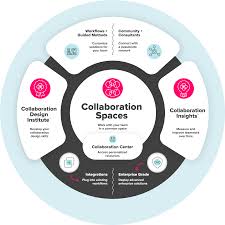Counseling LGBTQ Individuals: Providing Support and Understanding
For many LGBTQ individuals, seeking counseling can be a crucial step towards improving their mental health and overall well-being. Counseling provides a safe and supportive space for individuals to explore their thoughts, feelings, and experiences without fear of judgment or discrimination.
One of the key benefits of counseling for LGBTQ individuals is the opportunity to work with a therapist who is knowledgeable about LGBTQ issues and identities. This can help create a sense of understanding and validation that may be lacking in other areas of their lives.
Additionally, counseling can help LGBTQ individuals navigate the unique challenges they may face, such as coming out to family and friends, dealing with discrimination or stigma, or exploring their gender identity or sexual orientation.
Therapists who specialize in counseling LGBTQ individuals are trained to provide culturally competent care that takes into account the specific needs and concerns of the LGBTQ community. They can offer support in areas such as identity exploration, relationship issues, trauma recovery, and mental health concerns.
By seeking counseling, LGBTQ individuals can work towards greater self-acceptance, improved relationships, enhanced coping skills, and a stronger sense of empowerment. Counseling can be a valuable resource for those who are navigating the complexities of being LGBTQ in a society that may not always be accepting or understanding.
If you are an LGBTQ individual seeking support or guidance, consider reaching out to a counselor who specializes in working with the LGBTQ community. Remember that you deserve to receive care that is affirming, respectful, and tailored to your unique needs.
Top 5 Tips for Effective LGBTQ Counseling: Creating an Inclusive and Supportive Environment
- Create a safe and inclusive space for LGBTQ individuals to share their experiences.
- Use gender-affirming language and ask about preferred pronouns.
- Be knowledgeable about LGBTQ issues and resources available to support them.
- Respect the unique challenges faced by LGBTQ individuals in society and offer nonjudgmental support.
- Consider seeking specialized training or supervision to enhance your competency in counseling LGBTQ clients.
Create a safe and inclusive space for LGBTQ individuals to share their experiences.
Creating a safe and inclusive space for LGBTQ individuals to share their experiences is essential in counseling. By fostering an environment free from judgment, discrimination, and stigma, counselors can help LGBTQ clients feel respected, understood, and validated. This sense of safety allows individuals to open up about their thoughts and feelings, explore their identities, and work through challenges with the support of a compassionate professional. Building trust and rapport through a welcoming atmosphere is key to promoting healing and growth for LGBTQ individuals in therapy.
Use gender-affirming language and ask about preferred pronouns.
In counseling LGBTQ individuals, it is essential to use gender-affirming language and inquire about their preferred pronouns. By doing so, therapists create a welcoming and inclusive environment where individuals feel respected and validated in their gender identity. Acknowledging and using the correct pronouns shows a deep level of understanding and support for the individual’s identity, fostering trust and openness in the therapeutic relationship. This simple yet powerful gesture can make a significant difference in helping LGBTQ individuals feel seen, heard, and valued during their counseling sessions.
Be knowledgeable about LGBTQ issues and resources available to support them.
It is essential for counselors working with LGBTQ individuals to be knowledgeable about LGBTQ issues and resources available to support them. Understanding the unique challenges, experiences, and needs of the LGBTQ community is crucial in providing effective and affirming care. By staying informed about LGBTQ-related topics, counselors can create a safe and supportive environment that fosters trust and understanding, ultimately helping their clients feel validated and empowered in their journey towards mental health and well-being.
Respect the unique challenges faced by LGBTQ individuals in society and offer nonjudgmental support.
It is essential for counselors working with LGBTQ individuals to respect the unique challenges they face in society and to provide nonjudgmental support. LGBTQ individuals often encounter discrimination, stigma, and misunderstanding, which can impact their mental health and well-being. By acknowledging these challenges and offering a safe and accepting space for clients to explore their thoughts and feelings, counselors can help empower LGBTQ individuals to navigate their experiences with resilience and self-compassion.
Consider seeking specialized training or supervision to enhance your competency in counseling LGBTQ clients.
When providing counseling services to LGBTQ clients, it is essential to consider seeking specialized training or supervision to enhance your competency in understanding and addressing the unique needs of this community. By undergoing specialized training, counselors can gain valuable insights into LGBTQ identities, experiences, and challenges, allowing them to offer more effective and affirming support to their clients. Supervision from experienced professionals in LGBTQ counseling can also provide guidance and feedback to help counselors navigate complex issues and ensure that they are providing culturally competent care. Investing in ongoing education and supervision can greatly benefit both counselors and their LGBTQ clients by fostering a more inclusive and supportive therapeutic environment.




Leave a Reply